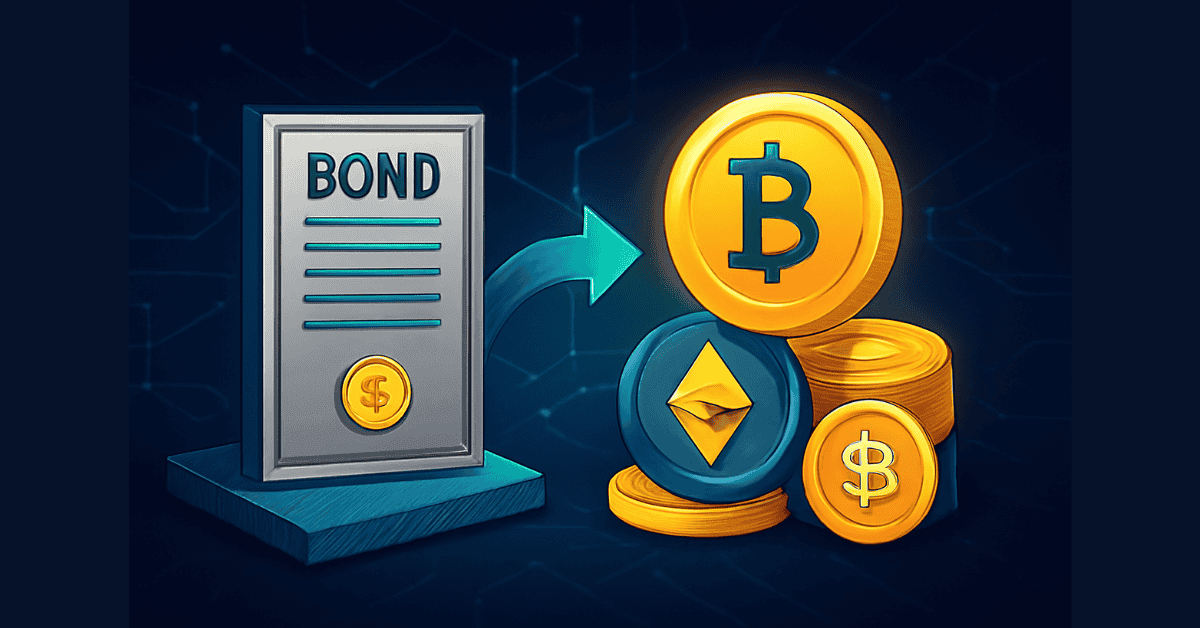
Bond Tokenization: A New Gateway for Finance and Crypto
1. What Are Bonds in the Web3 Context?
Traditional bonds are securities that represent ownership of a portion of debt issued by an organization — such as a government, corporation, or financial institution. Bondholders receive fixed or floating interest (coupon) payments over a predefined term.
However, within the decentralized finance (DeFi) and blockchain ecosystem, a new concept is emerging: Tokenized Bonds. These are digital versions of bonds issued on a blockchain, enabling peer-to-peer trading, real-time settlement, and greater transparency — without relying on intermediaries.
2. Traditional Bonds vs. Crypto Bonds (Tokenized Bonds)
| Criteria | Traditional Bonds | Crypto Bonds (Tokenized) |
|---|---|---|
| Trading | Via banks or brokerage firms | Via DeFi wallets or DEX platforms |
| Accessibility | Regionally restricted | Global, 24/7 on blockchain |
| Interest model | Fixed or floating | Flexible, programmable via smart contracts |
| Liquidity | Often low (especially OTC) | High liquidity on decentralized exchanges (DEX) |
| Transparency | Depends on issuer disclosure | Public data, on-chain verification |
Several leading DeFi protocols such as Maple Finance, Goldfinch, and Ondo Finance now allow investors to access corporate loans and short-term fixed-income products via tokenized models.
3. Benefits and Risks of Investing in Web3 Bonds
3.1. Benefits:
-
- Borderless access without the need for a bank account
-
- Customizable risk-return options, from overcollateralized debt to high-yield loans
-
- Smart contract automation, ensuring transparency and immutability
3.2. Risks:
-
- Smart contract vulnerabilities or project hacks may result in loss of funds
-
- Many DeFi protocols remain unaudited or lightly regulated
-
- Asset valuation and issuer reliability are harder to verify compared to traditional frameworks
4. Trends & Tips for Individual Investors
In a time of global financial uncertainty, bond tokenization is gaining traction as a bridge between traditional finance and decentralized finance. Major institutions like BlackRock and JPMorgan are already experimenting with blockchain-based bond offerings.
Retail investors should:
-
- Prioritize audited projects partnered with trusted institutions
-
- Carefully analyze interest models, lock-up periods, and collateral terms
-
- Avoid going “all-in” on high-yield tokens with unclear structures
5. Conclusion
Bonds are no longer limited to traditional capital markets. With blockchain and smart contracts, crypto bondsintroduce a new way to own, trade, and manage fixed-income assets across borders — with increased flexibility and user control.
However, like all investments, success begins with strong research and clear understanding — because transparency doesn’t always mean safety.